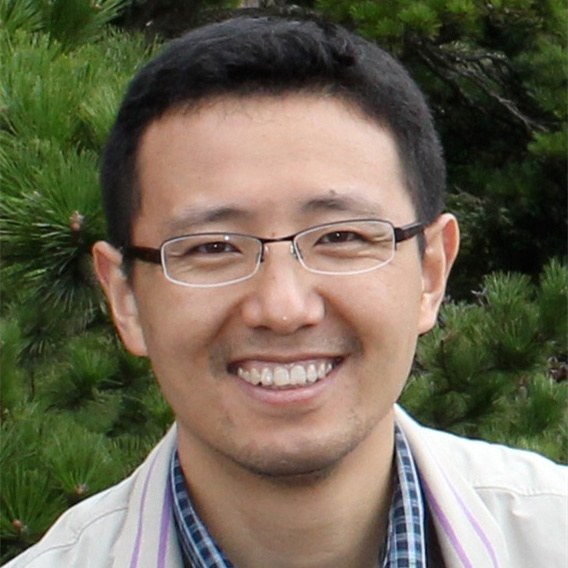Areas of Focus
- Molecular Pathological Mechanisms of Liver Diseases
Work Experience
- 2008-09~2011-07 - Shanghai Institute of Biochemistry and Cell Biology, Chinese Academy of Sciences - Researcher
- 2004-08~2008-08 - Institute of Molecular Pathology (IMP), Vienna, Austria - Postdoctoral Researcher
- 1998-09~2003-08 - Shanghai Institute of Cell Biology, Chinese Academy of Sciences - PhD Student
- 1992-09~1997-08 - Department of Biology, University of Science and Technology of China - Bachelor's Student
Academic Background & Achievements
- 1998-09--2003-08 PhD: Shanghai Institute of Cell Biology, Chinese Academy of Sciences
- 1992-09--1997-08 Bachelor's: Department of Biology, University of Science and Technology of China
Publications
- Applications of liver organoids, Lijian Hui, 2023
- A Pharmacogenomic Landscape in Human Liver Cancers, Lijian Hui, 2020
- A Homeostatic Arid1a-Dependent Permissive Chromatin State Licenses Hepatocyte Responsiveness to Liver-Injury-Associated YAP Signaling, Lijian Hui, 2020
- A Pharmacogenomic Landscape in Human Liver Cancers, Lijian Hui, 2019
- A Homeostatic Arid1a-Dependent Permissive Chromatin State Licenses Hepatocyte Responsiveness to Liver-Injury-Associated YAP Signaling, Lijian Hui, 2019
- Modeling liver cancer initiation with organoids derived from directly reprogrammed human hepatocytes., Lijian Hui, 2019
- Arid1a regulates response to anti-angiogenic therapy in advanced hepatocellular carcinoma, Lijian Hui, 2018
- High-throughput screening for Survivin and Borealin interaction inhibitors in hepatocellular carcinoma, Lijian Hui, 2017
- Distinct Gene Expression and Epigenetic Signatures in Hepatocyte-like Cells Produced by Different Strategies from the Same Donor, Lijian Hui, 2017
- Baf60b-mediated ATM-p53 activation blocks cell identity conversion by sensing chromatin opening, Lijian Hui, 2017
- Hepatocellular carcinoma repression by TNFa-mediated synergistic lethal effect of mitosis defect-induced senescence and cell death sensitization, Lijian Hui, 2016
- Improved survival of porcine acute liver failure by a bioartificial liver device implanted with induced human functional hepatocytes, Lijian Hui, 2016
- Hepatocellular carcinoma cell lines retain the genomic and transcriptomic landscapes of primary human cancers, Lijian Hui, 2016
- Efficient liver repopulation of transplanted hepatocyte prevents cirrhosis in a rat model of hereditary tyrosinemia type I, Lijian Hui, 2016
- DUSP16 ablation arrests the cell cycle and induces cellular senescence, Lijian Hui, 2015
- miR-27b synergizes with anticancer drugs via p53 activation and CYP1B1 suppression, Lijian Hui, 2015
- Direct Reprogramming of Human Fibroblasts to Functional and Expandable Hepatocytes, Lijian Hui, 2014
- Hepatic Loss of Survivin Impairs Postnatal Liver Development and Promotes Expansion of Hepatic Progenitor Cells in Mice, Lijian Hui, 2013
- Cell fate conversion: Direct induction of hepatocyte-like cells from fibroblasts, Lijian Hui, 2013
- Liver cancer initiation is controlled by AP-1 through SIRT6-dependent inhibition of survivin, Lijian Hui, 2012
- p38 alpha controls erythroblast enucleation and Rb signaling in stress erythropoiesis, Lijian Hui, 2012
- Mitogen-activated protein kinases in hepatocellular carcinoma development, Lijian Hui, 2011
- Induction of functional hepatocyte-like cells from mouse fibroblasts by defined factors, Lijian Hui, 2011
- Hepatoblast-Like Progenitor Cells Derived From Embryonic Stem Cells Can Repopulate Livers of Mice, Lijian Hui, 2010
- Antagonistic control of cell fates by JNK and p38-MAPK signaling, Lijian Hui, 2008
- p38 alpha suppresses normal and cancer cell proliferation by antagonizing the JNK-c-Jun pathway, Lijian Hui, 2007
- p38alpha: a suppressor of cell proliferation and tumorigenesis, Lijian Hui, 2007
- Identification of Alternatively Spliced mRNA Isoforms Associated with Cancers by Genome-wide ESTs Alignment, Lijian Hui, 2004
- Hepatic Loss of Borealin Impairs Postnatal Liver Development, Regeneration, and Hepatocarcinogenesis, Lijian Hui
- Proliferation of human HCC cells and chemically induced mouse liver cancers requires JNK1-dependent p21 downregulation, Lijian Hui





